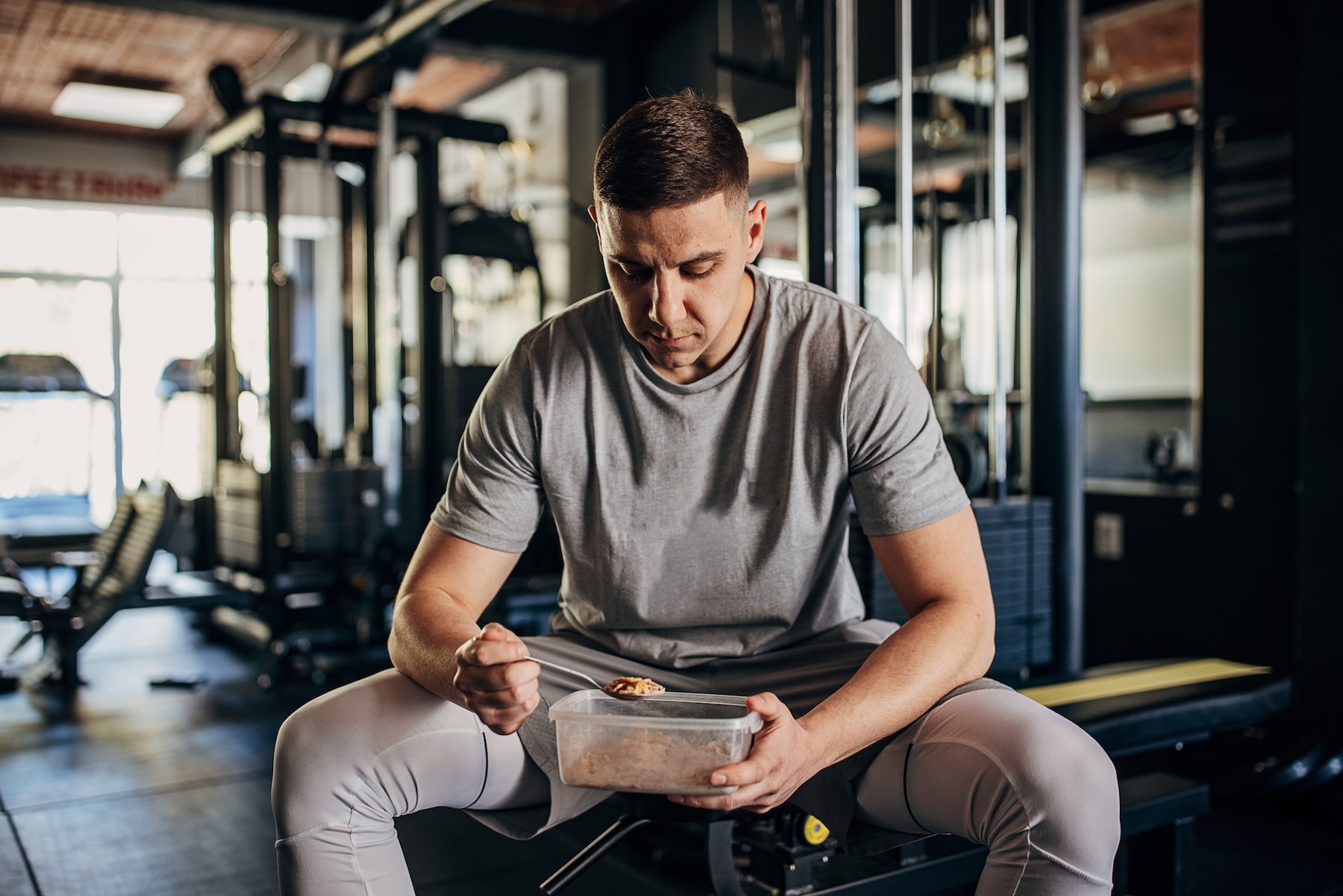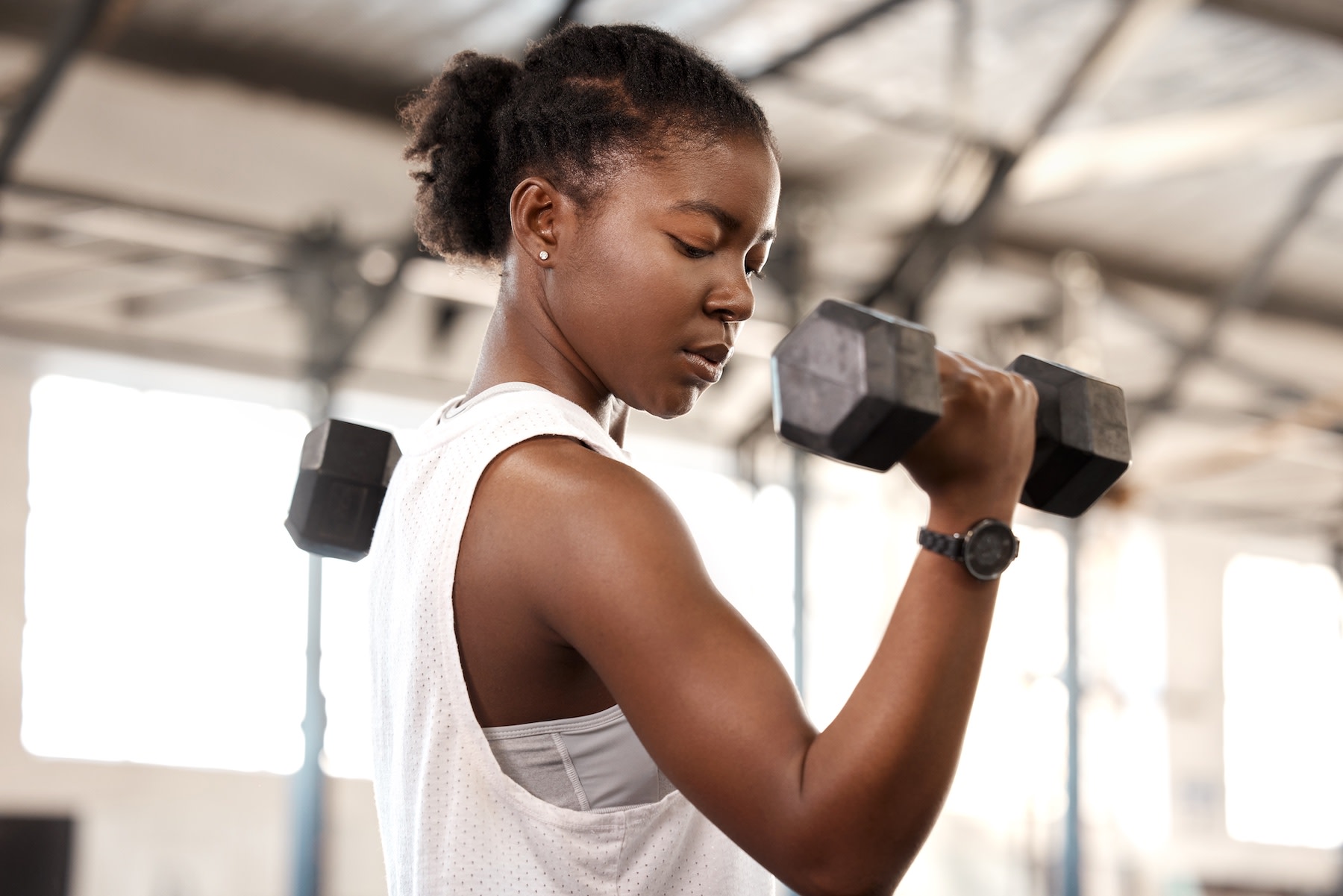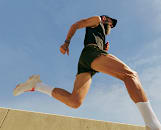
Hirurg / E+ via Getty Images
Do You Need Carbs to Build Muscle?
Don’t give protein *all* the credit.
By Hillary Hoffower•
Do You Need Carbs to Build Muscle?
How Protein and Carbs Support Muscle Growth
Are Simple or Complex Carbs Better for Supporting Muscle Gains?
Do Some Carb Food Sources Help You Build Muscle Better Than Others?
The Takeaway
Protein may be the star muscle-building macro, but it wouldn’t be able to do its job properly without its sister macro: carbs. While carbs are often unfairly blamed for adding calories to our plates, the truth is that we need them to survive and thrive. Carbohydrates fuel our bodies and offer a whole host of potential health benefits, like maintaining our blood sugar and promoting satiety, thanks to their many vitamins and minerals.
Discover more ways to reach your goals with Peloton
But do you need carbs to build muscle? While that’s technically protein’s job, carbs help with the process by giving our muscles energy. That makes them “essential for building muscle for active individuals,” according to Amy Stephens, RDN, a registered dietitian in New York City. Below, experts weigh in on everything you need to know.
Do You Need Carbs to Build Muscle?
If you’re working out regularly, then you need carbs for maximum muscle gains. “The human body thrives and performs at its best when supplied with adequate carbs,” says Maddie Pasquariello, RDN, a registered dietitian based in Brooklyn, New York. That’s because carbs are our main source of energy—they may not directly build muscle, but they provide the fuel we need to do so.
When we eat carbs, they break down into glucose, which fuels our cells, tissues, and organs, especially our brain and muscles. The carbs we don’t use immediately are stored in our muscles and liver as glycogen, which helps energize us during moderate- and high-intensity workouts—like when you’re sweating it out during a Peloton class. It’s why some endurance athletes practice carb loading, hoping to maximize their energy to increase stamina or aid recovery.

Peloton App
Access thousands of classes with no equipment needed.
But when we don’t eat enough carbs, our body eventually turns to protein for energy, which Stephens says takes longer to break down. It’s a survival mechanism and thus not an ideal fuel source—especially for the brain. “Consuming enough carbs prevents the body from using protein for energy, allowing protein to focus on building and repairing tissues,” she says.
Carbs are the preferred fuel for cardio exercise, but they’re also key for powering weightlifting or resistance workouts. Without enough carbs stored up in our bodies, we may not be able to go as hard during a sweat session.
“Even during weightlifting, when glycogen availability before exercise may not have as much of an impact on muscle protein synthesis after strength training, it can impair the volume of training and our performance,” Pasquariello says. On the flip side, she adds, the more we strength train, the better our bodies can store glycogen—which means we might need more glycogen (aka eat more carbs) to achieve the same levels of performance during our deadlifts or squats.
The longer and harder we work out, the more glycogen is depleted, leaving us fatigued. That’s why carbs are such an important recovery food post-workout as well: We can rebuild those glycogen stores by refueling with something like a sweet potato or whole-grain toast.
How Protein and Carbs Support Muscle Growth
Protein is the superstar in muscle growth. When we eat chicken, Greek yogurt, or any other high-protein food, we’re bolstering muscle protein synthesis, the process by which our bodies incorporate the amino acids from protein into our muscles.
“This supports muscle growth and improvements in strength, while helping repair muscles that may have experienced stress during your workout,” explains Pasquariello, adding that getting enough protein is one of the most important things to focus on to build muscle.
Again, protein does that best when it’s not being used as a secondary source of fuel, which is why we need carbs. “Muscle growth will only occur in a state of energy balance,” Stephens says—meaning we’ll only build muscle if our bodies have enough energy from carbs to fuel daily functions like breathing and digestion.
As Pasquariello explains, carbs help us refuel while protein helps us repair the tissues damaged during exercise and help prevent injury, illness, and muscle wasting while promoting overall recovery.
Our bodies need a little bit of both macronutrients to optimize recovery after a workout. Stephens recommends a ratio of 4 grams of carbohydrate to 1 gram of protein after cardio sessions and 2 grams of carbohydrate to 1 gram of protein after strength workouts.
As for how many carbs per day to build muscle? For someone exercising about one hour per day and aiming to build muscle, Stephens recommends consuming 5–7 grams of carbs per kilogram of body weight per day. But a training block with progressively increasing intensity or duration may call for higher carb intake.
“For example, an individual weighing 150 pounds who exercises about one hour daily should aim for about 340–475 grams of carbohydrates,” she explains. “This amount supports replenishing glycogen stores and ensures protein is spared for muscle repair and growth rather than being used as an energy source.”'
Are Simple or Complex Carbs Better for Supporting Muscle Gains?
There are three types of carbs: fibers, starches, and sugars. The first two are complex carbs, which help regulate digestion, maintain balanced blood sugar levels, and promote satiety. The third type falls into the simple carbs category, which our bodies digest quickly and enjoy a short burst of energy from.
Although simple carbs can be found in naturally occurring foods like fruit, they’re often found in ultra-processed foods like cereal or cookies. Simple carbs can also cause blood sugar spikes, and they lack the nutrients that high-quality complex carbs like quinoa and lentils have, making the latter often the healthier option. If you want to keep your performance levels up to build muscle in the weight room, Stephens says that eating complex carbs along with protein can help prevent energy crashes.
Complex carb food sources also tend to be higher in protein than their simple carb counterparts, which means they’re more likely to do double duty in providing energy and promoting muscle growth. “If your main goal is muscle growth, total protein intake is important, and if you struggle to get enough, those little boosts add up throughout the day,” Pasquariello says.
Whole grains (a type of complex carb) also contain a number of nutrients that you may not get enough of if you’re eating primarily simple carbs. They’re also high in fiber, which Pasquariello says improves digestive health, lowers your risk for multiple chronic diseases, and helps manage your weight. “Keeping all of these things in check sets your body up for success day to day and promotes longevity, so you’re more likely to get to and get through your workouts without difficulty,” she adds.
Of course, all foods can serve a place in a balanced diet, and Pasquariello says that simple carbs like a banana or rice cakes are solid options pre-exercise, especially if it’s shortly before an endurance session like a long run. That’s because our bodies thrive best in that type of scenario with something quick and digestible. But post-workout and during the day, make sure to get your complex carbs in.

PeopleImages / iStock / Getty Images Plus via Getty Images
Do Some Carb Food Sources Help You Build Muscle Better Than Others?
When it comes to promoting muscle growth, your total protein intake plays the biggest role. Eating more complex carbs that also contain protein is a simple way to help meet your daily protein goals. Stephens and Pasquariello recommend the following picks:
Quinoa
Oats
Farro
Beans
Lentils
Brown or wild rice
Teff
Whole-wheat pasta
Buckwheat
Millet
Those last five foods on the list are great options that give you a lot of bang for your buck, according to Pasquariello. “Buy your grains in bulk when you can, it’s much more cost effective,” she recommends.
She tends to meal-prep lots of one grain or carb source at the start of the week and switch it up week to week or every few days. That way, she can help build muscle through the higher-protein carbs she eats. But if your diet is already high enough in protein to meet your needs, Pasquariello adds, you don’t need to look to carbs to add more. Still, the fiber, vitamins, and minerals in complex carbs—and the energy they help you sustain—make them an essential part of your meal plan.
“You’re not going to be able to get into the gym and crush a workout in the first place if your body isn’t fueled properly or feeling its best,” Pasquariello says. “This means incorporating complex carbs and sources of fiber every day, and eating a diverse, nutrient-dense diet.”
The Takeaway
Highly active individuals need carbs to help build muscle. While carbs don’t directly promote muscle growth, they provide our bodies with the energy we need to get through muscle-building workouts—especially high-intensity ones. The more carbs we eat, the more glycogen we have that we can tap for fuel. This prevents us from turning to protein as a source of energy, allowing that macro to do its best work at building muscle.
Carbs are also important to refuel after a workout, helping to replenish our glycogen stores. Most of the time, you’re best off opting for complex carbs, which offer a range of nutritional benefits and tend to be higher in protein. Pair them with protein after a workout to help see those muscles grow.

Peloton App
Access thousands of classes with no equipment needed.
This content is for informational and educational purposes only and does not constitute individualized advice. It is not intended to replace professional medical evaluation, diagnosis, or treatment. Seek the advice of your physician for questions you may have regarding your health or a medical condition. If you are having a medical emergency, call your physician or 911 immediately.
Get our latest health stories straight to your inbox
Enter your email to get articles, expert-backed tips, and updates from Peloton sent to your inbox.
By providing your email address, you agree to receive marketing communications from Peloton.
For more about how we use your information, see our Privacy Policy.








